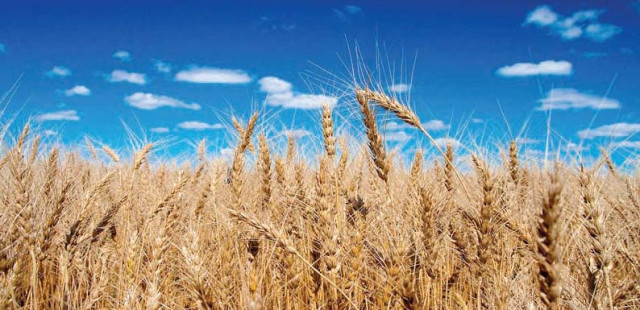International conference: ‘Food production at stake due to changing climate’
Speakers outline measures to address the problem.

Departments working on environment should improve their coordination and work to evolve pre-emptive measures to mitigate the effects of natural disasters in response to climate change.
These were the recommendations at the concluding day of a three-day international conference on climate change.
The conference at National University of Science and Technology had been arranged by the Pakistan Council for Science & Technology.
Participants opined that climate change cannot be avoided, but its affects can be mitigated using pre-emptive measures and coordinated efforts.
Their recommendations included preparedness to cope with floods and natural disasters, improving water channels and lake reservoirs, starting afforestation, and developing early warning systems.
Federal Minister for Climate Change Rana Farooq Saeed Khan gave special emphasis to the need to understand climate change and its direct impact on future crops yield in particular and the country’s economy in general.
The minister stressed on the need for investing in sustainable agriculture and small-scale farms while promoting the use of drought-resistant crop varieties, alternate farming practices and reduced cultivation of water intensive crops. “There is a need to build new dams and reservoirs for water storage and mitigating the impact of floods like the country had experienced in recent years,” he stated.
Papers presented
Earlier, experts presented research papers on different aspects of climate change.
A paper by Global Change Impact Studies Centre assessing the impact of climate change on wheat productivity said that the changing climate conditions accelerated plant phenology, reduced dry matter accumulation, curtailed growing season length and decreased crop yields.
The growing season length was projected to shorten in the range of 7-23 days.
The paper projects that wheat yields are likely to decrease by 5-11% in semi-arid, 8-13% arid and 11-16% in rain-fed arable lands under different scenarios.
The study suggests the need for putting in place appropriate adaptation strategies in order to bring wheat yields to a level that meets national wheat requirement.
Another study from the Agro-climatology Laboratory at the University of Agriculture in Faisalabad noted that increases in temperature shortened crop duration, with a 5% change on 0.9 degree centigrade change, and 7 to 10% with 1.8 degree centigrade change.
The study forecasts that the 1.8 degree centigrade increase in temperature as predicted for 2050 will be highly hazardous for maize production in Pakistan.
Their model predicts yield reduction of more than 20% in semi-arid areas.
Published in The Express Tribune, May 12th, 2012.



















COMMENTS
Comments are moderated and generally will be posted if they are on-topic and not abusive.
For more information, please see our Comments FAQ